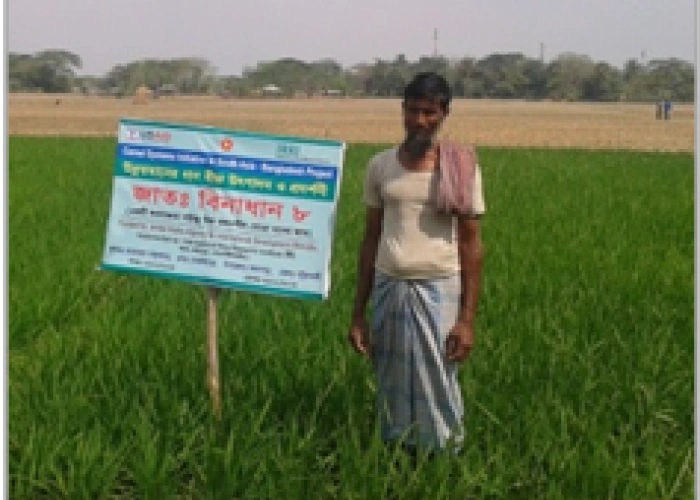Cereal Systems Initiative for South Asia

Intensive cropping systems that include rice, wheat and/or maize are widespread throughout South Asia. These systems constitute the main economic activity in many rural areas and provide staple food for millions of people. The decrease in the rate of growth of cereal production in South Asia is therefore of great concern. Simultaneously, issues of resource degradation, declining labor availability and climate variability pose steep challenges for achieving the goals of improving food security and rural livelihoods.
The Cereal Systems Initiative for South Asia (CSISA) was established in 2009 with a goal of benefiting more than 8 million farmers by the end of 2022. The project is led by the International Maize and Wheat Improvement Center (CIMMYT) and implemented jointly with the International Food Policy Research Institute (IFPRI), the International Rice Research Institute (IRRI) and the International Water Management Institute (IWMI). Operating in rural ‘innovation hubs’ in Bangladesh, India and Nepal, CSISA works to increase the adoption of various resource-conserving and climate-resilient technologies, and improve farmers’ access to market information and enterprise development. CSISA supports women farmers by improving their access and exposure to modern and improved technological innovations, knowledge and entrepreneurial skills. CSISA works in synergy with regional and national efforts, collaborating with myriad public, civil society and private-sector partners.
CSISA Goals
- Promote widespread adoption of resource-conserving practices, technologies and services that increase yields with lower water, labor and input costs.
- Support mainstreaming innovations in national-, state- and district-level government programs to improve long-term impacts achieved through investments in the agricultural sector.
- Generate and disseminate new knowledge on cropping system management practices that can withstand the impacts of climate change in South Asia.
- Improve the policy environment to facilitate the adoption of sustainable intensification technologies.
- Build strategic partnerships that can sustain and enhance the scale of benefits accrued through improving cereal system productivity.
To know more, read the CSISA Brochure